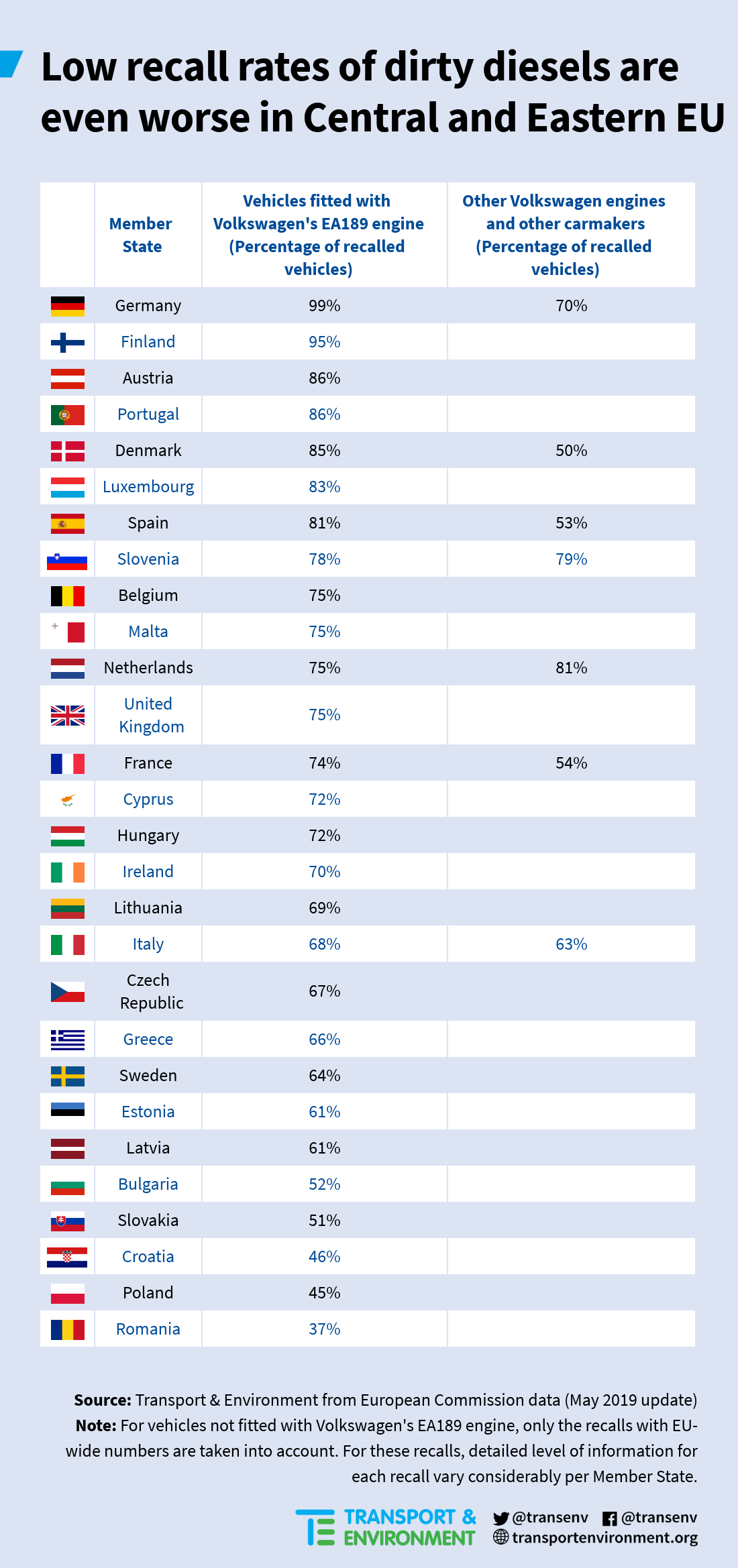
Interested in this kind of news?
Receive them directly in your inbox. Delivered once a week.
The situation in Romania is even worse, with only 37% of vehicles using the manipulated VW engine having been updated. In Croatia the figure is 46%. Poland, Romania and Croatia are among the 21 countries which have not even reported the number of recalls of the other dirty diesel engines identified in the scandal, according to the EU data analysed by T&E.
And the data does not account for the resale of unfixed dirty diesels shipped to Central and Eastern Europe from Western EU countries, where they are increasingly subject to city bans. 350,000 dirty second-hand diesel cars mainly from Germany were exported to Poland in 2017 alone. T&E said EU governments must make sure recalls are mandatory and carried out in a coherent and transparent manner across the whole EU Single Market, and that unfixed cars should not be allowed to be exported unless they are fixed.
350,000 dirty second-hand diesel cars mainly from Germany were exported to Poland in 2017 alone. T&E said EU governments must make sure recalls are mandatory and carried out in a coherent and transparent manner across the whole EU Single Market, and that unfixed cars should not be allowed to be exported unless they are fixed.
Right now cars can be sold across the EU single market once they have been type-approved by only one member state, but there is no European system to ensure the uniform recall of cars. New rules that allow EU-wide recalls will only apply to new cars sold as of September 2020 – so Europe is left with the fleet of polluting diesel cars resulting from Dieselgate.
T&E’s clean vehicles engineer, Florent Grelier, said: ‘The EU Single Market fails when it comes to emissions of cars. It only works for selling cars, but not for recalling them when things go wrong. There must not be any second class citizens in Europe. Every European has an equal right to clean air. The recent EU ‘roadmap towards clean vehicles’ shows that governments and the industry know exactly what needs to be done, they just have to start implementing.’
In Europe overall, only 10 million of the 43 million highly-polluting diesel cars and vans that were caught in the Dieselgate emissions scandal have been subject to a recall. At this rate, the software recalls will not be completed for another two years, the data indicates. T&E said the European Commission and EU governments need to accelerate software updates but also combine these with more effective hardware retrofits where technically feasible.
Florent Grelier added: ‘The current snail’s pace to clean up diesel cars across Europe is unacceptable. The industry has had almost four years since the diesel scandal broke but has failed to deliver even on its own commitments to fix manipulated cars. It’s time for governments to get tough and order mandatory recalls across the EU. This does not require any new laws but just political will.’


